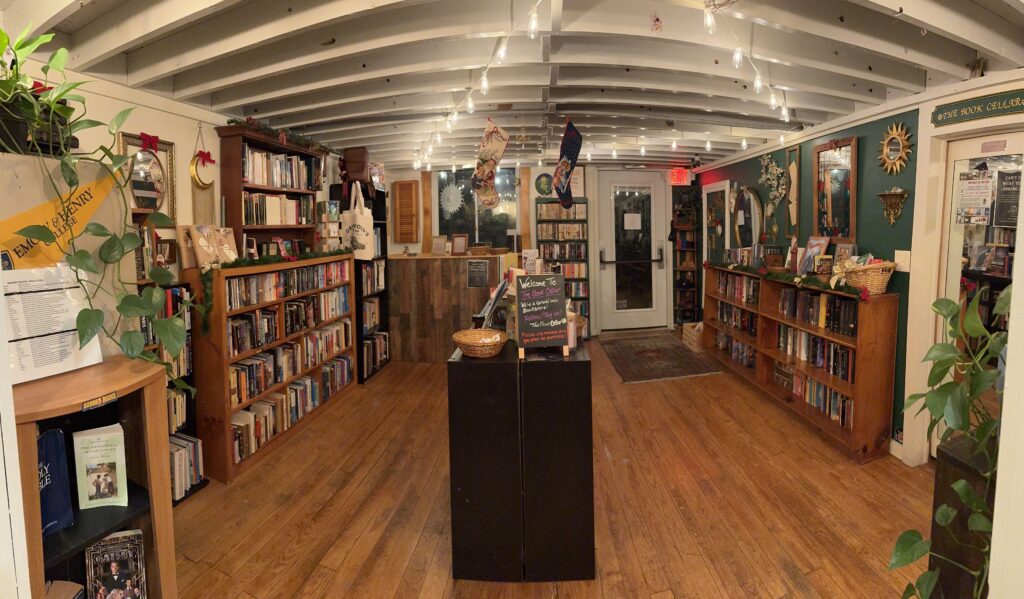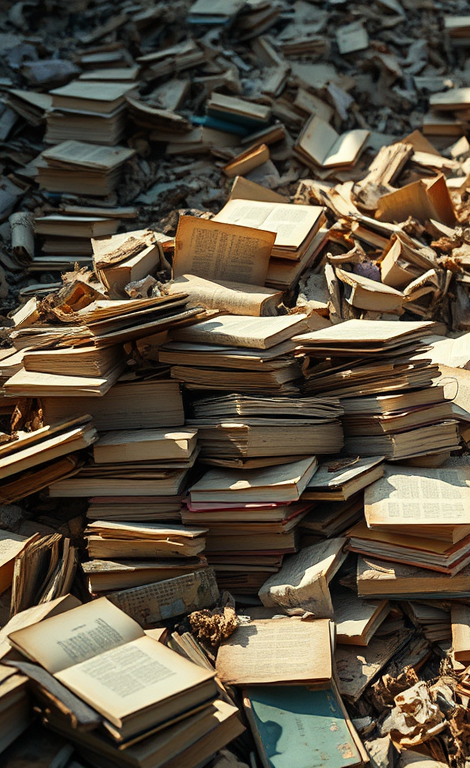The Book Cellar
A community hub for literacy and repurpose.
Welcome to The Book Cellar, a charming indie bookstore nestled in the heart of downtown Abingdon, Virginia. Since opening in May 2023, we’ve celebrated the power of a well-curated collection, offering books that inspire, educate, and delight.
Sharing a building with a cozy coffee shop, we make every inch of our space count, creating a warm and inviting haven for book lovers. From writing classes and poetry nights to our signature Adult Book Fair, The Book Cellar is more than a bookstore—it’s a vibrant hub for community and connection.

Curated with Care
Every book on our shelves is handpicked to spark curiosity, imagination, and joy.
Events That Connect
From writing workshops to open mic poetry nights, we create space for creativity and community.
Small but Mighty
Our cozy 250-square-foot shop proves that big stories can thrive in small spaces.

Why We Love Repurposed Books
A Greener Future
By focusing on used books, we reduce waste and promote sustainability, helping to protect the environment for future generations.
Affordable Reads for All
Repurposed books offer budget-friendly options, making it easier for everyone to enjoy the stories they love without breaking the bank.
Stories with a History
Each used book has a unique story beyond its pages, connecting readers through its journey and adding a touch of character to every purchase.
Wasteful Practices of New Books
The production and disposal of new books contribute significantly to environmental waste. Notable figures include:
- High Unsold Inventory: Approximately 30% to 40% of books are returned by bookstores annually, with 65% to 95% of these returned books being destroyed by publishers. HuffPost
- Resource Consumption: The U.S. book industry consumed about 30 million trees in 2006, with a carbon footprint equivalent to 12.4 million metric tons of CO₂, or 8.85 pounds per book sold. History of Information
- Landfill Impact: Paper accounts for up to 40% of total waste produced in the United States each year, amounting to 71.6 million tons of paper waste annually. Wikipedia

Eco-Friendly Benefits of Used Books
Used bookstores play a vital role in reducing the environmental impact of the publishing industry through thoughtful reuse and redistribution of books.
- Saving Resources
Used bookstores extend the life of books already in circulation, reducing the need for new paper, ink, and energy to produce fresh copies. - Reducing Landfill Waste
By giving books a second (or third) life, used bookstores keep millions of pounds of paper out of landfills every year, significantly cutting down on waste. - Lowering Carbon Footprints
Reusing books eliminates the emissions tied to manufacturing and distributing new books. Additionally, local used bookstores support the community without the environmental costs of shipping books across long distances. - Promoting a Circular Economy
Used bookstores encourage a culture of sharing, trading, and repurposing, ensuring that books are passed from one reader to another instead of ending up discarded.
